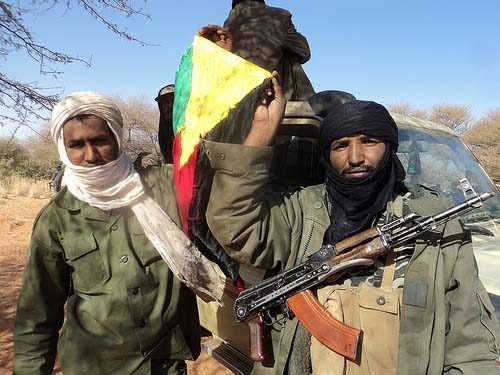
As France continues its weeks-long military intervention in the West African nation of Mali, questions about Qatar’s involvement with Islamic militias there have raised concerns in the political sphere.
Michael Stephens, researcher at the Royal United Services Institute for Defence and Security Studies in Qatar, explains what’s happening – and why people shouldn’t jump to any conclusions yet.
By Michael Stephens
Since December 2011, concern in Western states over Islamist militias and their increasing presence in Northern Mali became so acute that on Jan. 11, French military forces intervened at the request of Mali’s government to drive back the militias.
France, however has accused some of its friends of working against this goal; namely Qatar, the country with whom it shares a deep and intimate defence relationship, and whose malls almost always include French supermarket giant Carrefour.
The official story is that Qatar has been sending money to rebel-held areas for humanitarian aid purposes through charity organizations. But the French say that Qatar by extension is sponsoring rebels with links to Al Qaeda and radical Islamist beliefs who seek to topple Mali and use it as a launch pad for global jihad.
The truth is that no one knows just how deep Qatar’s links to these militias run. What is certain is that there are Islamic charities on the ground, alongside the Islamic Red Crescent, and Qatari money is supporting the work of these groups. We don’t know how much, and how long this has been going on.
But what could Qatar possibly be doing? As with all Qatari foreign adventures, the motivation behind the donations is not simple altruism, though the Qataris may well be moved to help Mali’s impoverished and food-insecure society. Bottom line: Like all countries, Qatar wants a return on its investments.
Winning team
Qatar likes to back winners, and it views the Islamist movements in Mali as worthy of support because they are on the ascendancy and may play a significant future role in the governance of the nation.
The larger strategic question here is to what extent Qatar seeks to engineer a de facto division of the country into North and South Mali, of which the Northern half of the country (the desert region consisting of Timbuktu, Gao, and Kidal) would be ruled by a rebel/Islamist government deeply indebted to Qatar for its financial support and backing. Meanwhile, the ruling Western-backed government continues to hold the south.
This fits into Qatar’s long-term goal of increasing bilateral ties with Mali, allowing further expansion into the Sahel, with its numerous untapped hydrocarbon reserves and potential for ore deposits of various precious metals. All in all a good potential deal for a tiny Emirate lacking in anything other than natural gas.
No global jihad
What Qatar is not doing, however, is spreading some sort of global jihadist movement across the Islamic world and into Africa. It may suit some analysts to claim that Qatar is some sort of proto-jihadist sponsoring rogue state, but this is simply not the case.

The Qatari elite is deeply uncomfortable with such associations. It would be loathe to raise the twin ires of the West and neighboring Saudi Arabia, which could risk its long-term strategy of securing a financially stable and strategically secure country when the oil and gas run dry.
Qatar’s primary motivations for supporting Islamists are to secure its own long-term business interests and increase its influence over rapidly changing events in the Muslim and Arab world. For a small country like Qatar, long-term survival is secured outside its borders, and for the considerable future the country has the money to ensure that this can be done.
In light of recent accusations however, the extent of Qatar’s involvement with these Islamist rebels and whether it has indeed provided them with arms and military equipment will surely come to light. Qatar has denied any nefarious involvement and should be considered innocent until proven guilty. However, the French are not a nation to be trifled with, and if there is evidence to contrary, a seismic diplomatic split looms large which Qatar cannot possibly expect to win.
Thoughts?
Credit: Top photo by Maghrarebia; second photo by Mohamed Yahya







